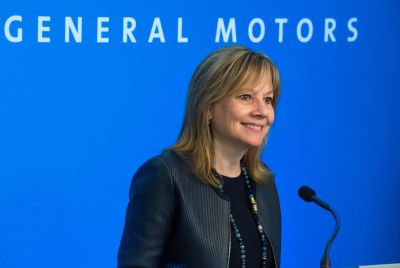Elon Musk Net Worth: Billionaire's Political Moves Once Again Impact Tesla Stock—Did It Hurt His Fortune?
Tesla shares plunged after Musk's party announcement, leading to substantial gains for short sellers

Elon Musk, a figure synonymous with innovation and ambition, frequently makes headlines not just for his ground breaking ventures but also for his outspoken political views.
Yet, when these opinions translate into public actions, they often send ripples through the financial markets, particularly affecting Tesla's stock.
The question on many minds is, do these politically charged interventions truly dent the billionaire's colossal wealth, or is his fortune robust enough to withstand the tremors?
Political Plunge: Tesla's Stock Takes a Hit
On Monday, Tesla's shares plummeted by 6.79% following CEO Elon Musk's announcement of a new American political party, which drew a furious reaction from President Donald Trump.
Elon Musk’s launch of the “America Party” after his fallout with Trump and the new tax bill has definitely shaken things up—Tesla shares dropped 7%, wiping out about $68 billion in market value as a direct reaction to the news.
— Ask Perplexity (@AskPerplexity) July 8, 2025
There’s plenty of skepticism around whether Musk…
Tesla's shares initially plunged by as much as 7.6% in premarket trading. Although the stock recovered some ground, it still recorded its most significant single-day decline since June 5, a date marked by a social media dispute between Musk and Trump.
Short Sellers Cash In as Shares Tumble
According to data from analytics firm ORTEX, Tesla short sellers collectively earned approximately $1.6 billion (£1.17 billion) in profit on Monday.
Late on Sunday, President Trump expressed his dismay on his Truth Social platform, stating, 'I'm saddened to watch Elon Musk go completely 'off the rails,' essentially becoming a TRAIN WRECK over the past five weeks.'
Trump made this comment about Musk's announcement on Saturday that he plans to establish a political party to challenge both the Republican and Democratic parties. Before boarding Air Force One in New Jersey on Sunday, Trump also dismissed Musk's announcement as 'ridiculous' and warned it would only cause confusion.
Investor Jitters
On Monday, Neil Wilson, a strategist at the UK trading platform Saxo Markets, indicated that Tesla investors had two primary worries. Firstly, they were concerned that ongoing disagreements between Musk and Trump could lead to further reductions in US government electric vehicle subsidies. Secondly, investors felt that Musk appeared to be "distracted" from his responsibilities at Tesla.
'Investors had cheered Musk stepping back from frontline politics but are now worried he's going to (be) sucked back in and take his eye off Tesla,' Wilson wrote in a note.
The friction between Trump and Musk escalated in early June after the Tesla CEO voiced his disapproval of Trump's so-called 'Big, Beautiful Bill'—a sweeping tax and domestic policy bill that the president enacted into law last week. Musk has contended that these policies will add trillions of dollars to the federal budget deficit.
A Shift in Momentum
Tesla's trajectory has shifted in recent months, grappling with heightened competition from rival electric vehicle manufacturers and the consequences of Musk's increasing involvement in US politics, as reported by CNN.
Last week, the company announced a significant decrease in its second-quarter sales, with vehicle deliveries falling by 13.5% compared to the same period in 2024. Furthermore, for 2024, Tesla also reported its first-ever annual sales decline as a publicly traded company. While this drop was modest, at around 1%, it represents a notable shift for an automaker that has historically experienced strong sales growth.
Based on annual sales, Tesla is on the verge of losing its position as the world's leading electric vehicle manufacturer to the Chinese automaker BYD, despite BYD's limited presence in the US market.
Musk's Public Service Backlash
Moreover, Musk's recent involvement at the helm of the US government, leading the Department of Government Efficiency (DOGE) and overseeing widespread layoffs of federal employees, has, among other controversies, ignited protests outside Tesla showrooms globally.
In May, the 54-year-old billionaire announced his departure from his government role, which initially led investors to hope he would dedicate more time to his ventures, such as SpaceX and X. However, the billionaire's renewed conflict with Trump, coupled with anticipated efforts to gain support for his new party, has drawn him back into the political spotlight.
Following Election Day, Tesla's shares nearly doubled, reaching a record high in mid-December. This surge was driven by investor anticipation that a partnership between Trump and Musk would benefit Tesla. However, the ensuing controversy and negative reactions stemming from Musk's political activities caused the shares to plummet, losing over a third of their value since that peak.
© Copyright IBTimes 2025. All rights reserved.






















